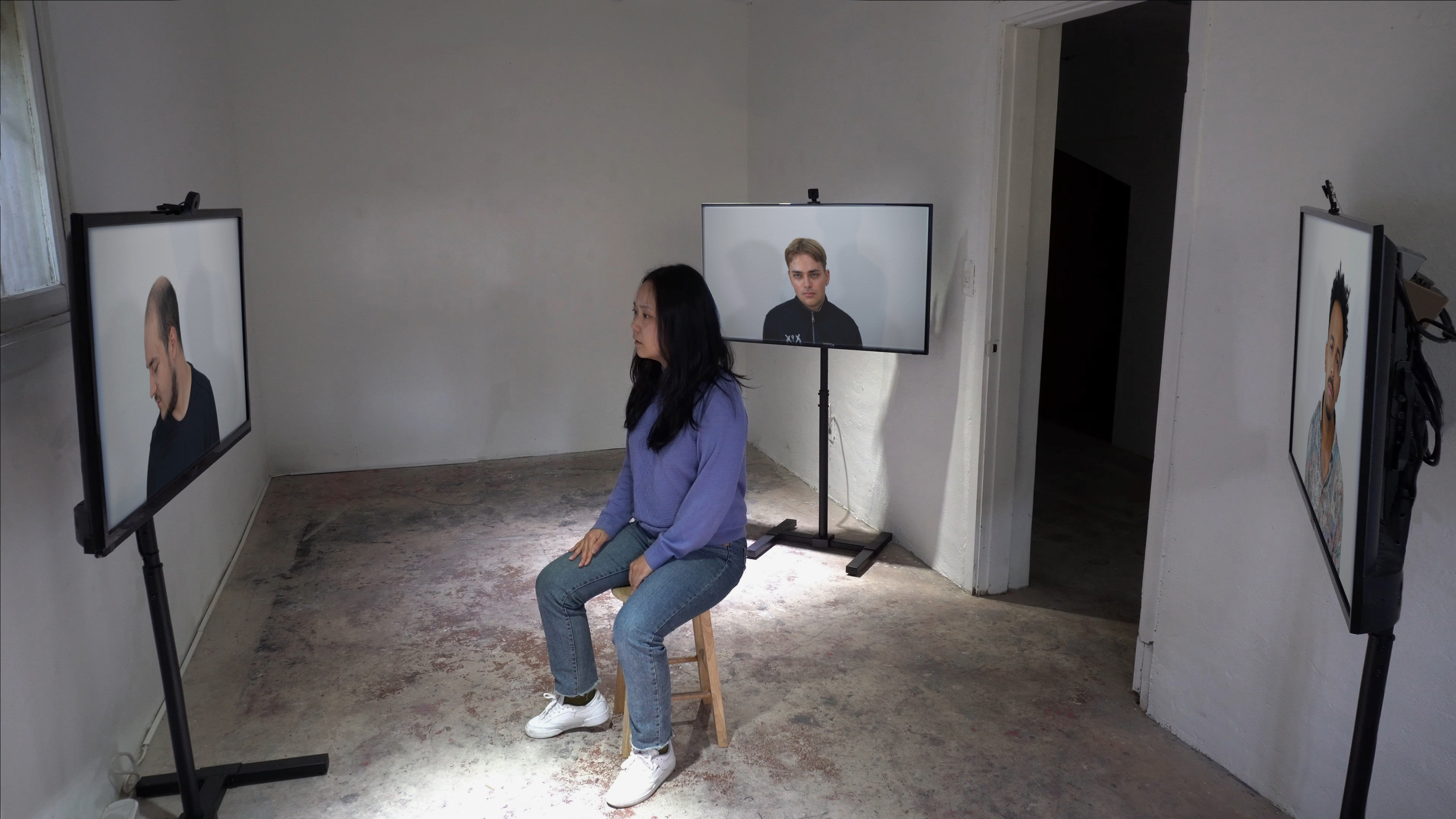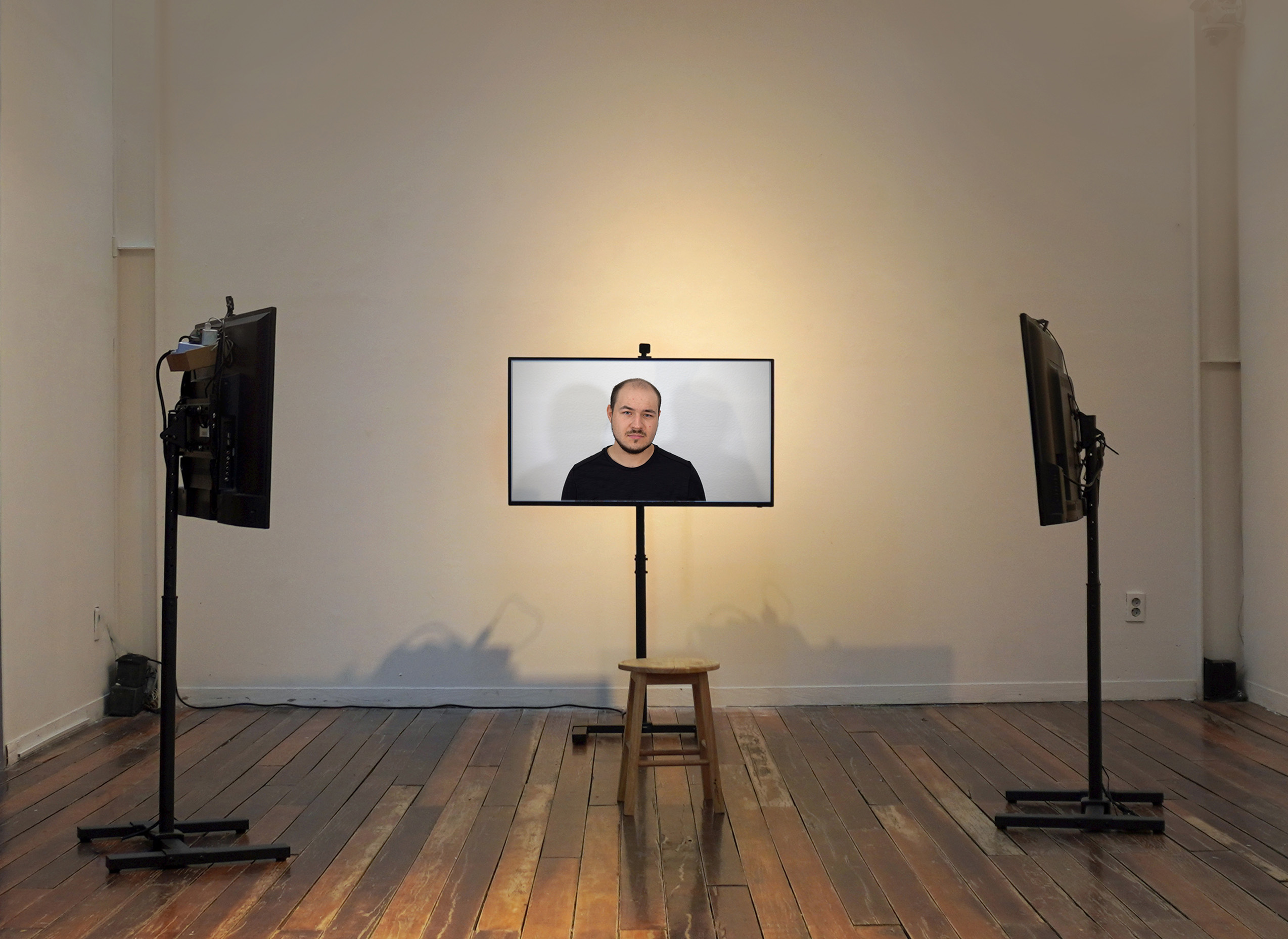
A Visitor can sit in a round stool in the center where the three monitors are placed at the end of the triangle. On the monitors installed before the visitor enters, three people each make an observation face on the monitor and stare at someone in front with interest. When the visitor sits in a chair and looks at one of the three monitors, for example Monitor A, sensors from the camera above and at the center of Monitor A recognize a face and send a signal to the computer, and then the person on the monitor turns his head to the side and pretends to look elsewhere. However, he cannot overcome his curiosity and glances briefly at the person again, and turns his head again when he thinks he is caught staring at the person. And if the visitor turns around and looks at another monitor B, the camera on another monitor B will recognize the face again. And person A observes the visitor with confidence. The visitor will feel the gaze staring from another monitor C. So if he turns his head quickly and looks at him, Person C will avoid looking at him again and pretend not to observe him. In the end, he cannot make eye contact with anyone, nor can he catch the moment they observed him. There are only two other people looking at the visitor from behind. If you recognize someone staring at you for more than five seconds on the street, you will feel strange. People try to be careful because they know it is rude to stare at others for more than three seconds, no matter what strange-looking person they encounter. Nevertheless, observing others is a universal human need. But they donät want to be caught observing him, so people pretend to look elsewhere, glancing carefully, or looking down from the balcony and hiding themselves. When I want to see naturally, I go to a sidewalk cafe. It would be strange to find out that my eyes met someone head-on and that person kept looking at me. Youäll want to get out of the place naturally. I wasnät a very noticeable person in my hometown. Nevertheless, when I went out, I cared about how others would see me. Rather, I used to feel comfortable in a crowded place where peopleäs eyes were dispersed. In my mid-20s, I came to Germany to study, and I was thoroughly eye-catching. There were people who were rude enough to look openly, and there were ordinary people who just threw their eyes naturally without intention. Now Iäm at a level where I donät really care about those views. Sometimes I thought that people who stare at me seemed to think that they had the right to look at me. They did not insult or threaten me. They just stared. Of course, people donät die just by looking at them. However, there is nothing we can do if that happens in places like subways where the distance is fixed and inevitable. I have no choice but to return those uncomfortable eyes until he stops looking at me.
2022, Gwangju, South Korea, 16:9, 3 Channel video installation, Raspberry Pi, Webcam
